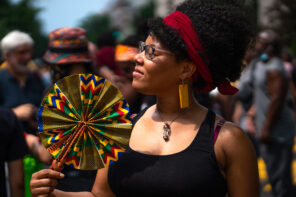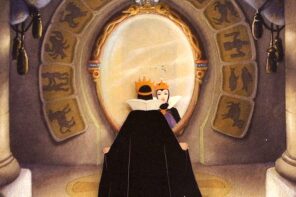If National Organization for Marriage-paid signature gatherers have their way a referendum to roll back marriage equality laws passed by the Washington state legislature in February will appear on the November 2012 ballot.
And if Referendum 74, “The Washington Same Sex Marriage Referendum,” does make it to the ballot Mormons who support marriage equality will be ready to act. Sara Long and Scott Holley are LDS Church members and founding members of Washington Mormons for Marriage Equality. I spoke with them this weekend about the campaign season ahead.
Everyone has been bracing to see what role the LDS Church takes in each state-level ballot fight over marriage equality. Tell us about Washington.
Scott Holley: My wife and I moved from Massachusetts to Washington just a few weeks before gay marriage became legal in the state [in February 2012]. Because I had heard so much about what happened in California—how many members left the Church, how many wards became battlegrounds—I became really concerned about Church involvement. I called the group leading the charge against marriage equality and asked them if the LDS Church was getting involved, and the staffer on the phone said, “We’re meeting with church leaders right this minute; they’re at lunch with Focus on the Family and [National Organization for Marriage-sponsored] Preserve Marriage Washington.”
To this day, we don’t know whether it was local or general church leaders who met with Preserve Marriage Washington—we believe they were local leaders. But a reporter for the Boston Globe was able to confirm that the meeting took place.
A letter about Referendum 74 has been read in some Washington stakes—but not all, so we’re not sure if it came from Salt Lake City or not—and the letter encouraged members to vote for the initiative but instructed them not to use ward contact lists for campaigning or to say they were campaigning or voting on behalf of the LDS Church. The letter even specified that the letter itself should not be printed or distributed, only read by the bishop to congregations.
It seems like there is a heightened awareness on the part of LDS leaders that members are tracking what’s happening more carefully.
SH: Yes. We believe it’s crucial to document what’s happening around the country among Mormons wherever marriage equality is on the ballot. In Maryland, one ward used email to organize signature gatherers for the same-sex marriage referendum there. Washington Mormons for Marriage Equality broke that story. A week later, in North Carolina, we learned that a letter was read in church stating that members should vote on this issue, that the issue was important, but that members should not use ward email lists or say that they are participating in the campaign on behalf of the Church.
We’ve all been wondering if we would see another LDS-backed campaign of the magnitude and intensity of the Proposition 8 effort, but your reports suggest that it’s not happening. The organizing seems to be much more local and uneven.
SH: Yes. That seems to be the case. That’s the kind of information members need to navigate the intersection of faith and politics. For example, we know that in California LDS Church members were disciplined by their local leaders for opposing Proposition 8, even though regional Church leaders said that members with dissenting opinions should not be disciplined. Making information open and available can help everyone.
The Washington initiative is still in signature-gathering phase. What will Washington Mormons for Marriage Equality do if it comes to the ballot?
SH: We are organizing members on Facebook and will soon have our website up. We have already joined a Faith Action Network with Washington Catholics for Marriage Equality. Catholic archbishops allowed signatures to be collected in Catholic parishes—in the church itself. So far, at least four bishops have refused to do so, and Catholics for Marriage Equality was born out of that spirit of resistance. They have 1000 members already. Together, we are organizing joint calling days the last Tuesday of each month to bring together Catholics, evangelicals, and Mormons for marriage equality.
Sara Long: We are also organizing Mormon delegations to march in Pride parades in Seattle and Portland.
SH: And we’ll be ready to counter misinformation about marriage equality and religious freedom. Our Washington law [SB 6239] already states that no religion shall be forced to perform same-sex marriages. Still, backers of the referendum are trumpeting out misleading arguments about same-sex marriage compromising religious freedom. We will counter those with facts.
SL: And doctrine too. Agency—the right of individuals to make moral choices—is an important element of Mormon belief. Forbidding civil gay marriage means forbidding people from choosing.
To close, tell me how you came to be supporters of same-sex civil marriage rights.
SL: I’ve never been against gay rights. I remember when I was a little kid, these lifelong family friends—their daughter came out as a lesbian. They were Mormon, and the dad was bishop of their local congregation. He did not allow his daughter to bring her partner home for Thanksgiving. I thought then that this was one of the worst things I’d ever heard. It made a tremendous impression on me.
When I grew older, as the LDS Church deepened its involvement in the political fight over same sex marriage, I started to realize that there must be people out there who identified as Mormon and for gay rights. Personally, I felt that support for gay rights was in line with everything I was taught as a child, from my parents, the Church. It requires cognitive dissonance to say that you should stand up for the rights of the oppressed and show kindness and love to everyone but that you must also tell people they can’t marry who they love. It doesn’t work for me.
SH: I grew up in Meridian, Idaho, and I was pretty virulently homophobic. Back in high school, in 1994, there were protests when a lesbian couple was brought to speak at our high school. Go back and look at the newspapers from that moment, and you’ll see pictures of a young Scott Holley protesting against the teachers who brought gay people into our high school.
I moved to Massachuestts in 2004 with my wife, just in time for Massachusetts to become the first state to legalize gay marriage. We were told by ecclesiastical leaders to sign petitions and call legislators to get it overturned. I didn’t make any calls, but I agreed with them. But I remember that when they said, “You have to do this because marriage is under attack,” I thought to myself that I didn’t feel like my marriage was under attack.
Fast forward to 2008. I’ve pretty much realized the sky didn’t fall, the horrible things that were supposed to happen when gay people married didn’t happen. Also, working in Boston, I got to know a lot of gay people. On the evening of Prop 8, a good friend came up to me and asked, “What is your Church doing in California? Why? Can you explain it to me?” It was not an attack. He genuinely wanted to understand, and I didn’t have a good answer. I was ashamed that I didn’t have a good answer.
Over time, I reflected on the shame I felt. I realized that at some point in the future my kids will ask what I did at this time, and I feel a responsibility for what has been done in the name of my faith to make sure my voice is not silent on this issue any more. Once I came out as an ally, a number of gay friends and family members came out to me, and in terms of love and connectedness these were among the most spiritual experiences I’ve had since [serving a proselytizing mission for the Church]. Every time I have one of those conversations, I want to get on Facebook and add another 30 members to Washington Mormons for Marriage Equality.
SL: Yes, when my children grow up I want them to look back and know that I did something during this civil rights effort. I want to make it clear that I did everything I could to advocate for equality.




